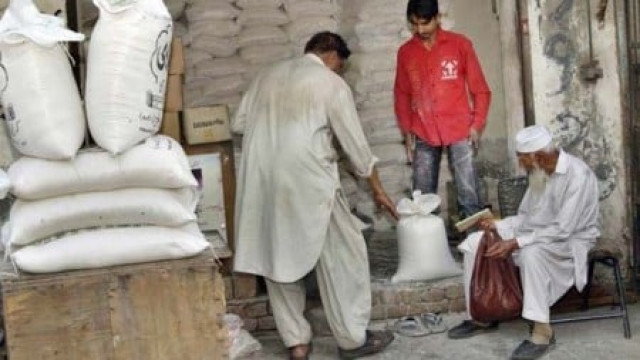Following safety protocols: Seeking standards, Punjab to set up modern testing lab
Govt approves construction of Punjab Agriculture, Food and Drug Authority Laboratories

PHOTO: FILE
The Provincial Development Working Party (PDWP) has approved the construction of the Punjab Agriculture, Food and Drug Authority Laboratories on a 64-kanal area near the Punjab Forensic Science Agency, Thokar Niaz Baig.
Official documents available with The Express Tribune show that the three-in-one laboratory will provide testing facilities for medicines for human and veterinary purposes. Raw and processed foods, water and pesticides and fertilisers will also be tested at the labs.
The new laboratory is aimed at developing an international standard agriculture, drug and food testing facility in Punjab. The project will be funded through the Chief Minister’s Special Development Package and executed by the Infrastructure Development Authority of Punjab (IDAP).

The project is divided into two phases. The first phase will involve testing facilities for fertiliser, pesticide, food and drugs. The second is to upgrade the existing facilities and absorb the Punjab Agriculture, Food and Drug Testing Authority (PAFDA) which was notified last year.
The government has already started the process of hiring consultants for design, resident construction supervision and technical input to PAFDA and IDAP for the project.
The consultant will identify specifications of technical equipment for laboratories and develop tender documents for its procurement.
He will also prepare standard operating procedures (SOPs) to start and maintain laboratories, equipment; and handle samples required for testing.
The consultant will identify human resource requirements for the new laboratory. In addition to being the design and resident construction supervision consultant, the firm will also be the technical adviser of the project and give impartial advice to government agencies.
Documents indicate the new testing facility will have a covered area of more than 250,000 square feet, including 50,000 for pharmaceutical, pesticide, fertiliser and food testing labs. The new laboratory will have over 10,000 square feet for storage, while the remaining space will be used for residences, parking and other amenities.
Under the project, the government will provide training to scientists according to international standards.
New laboratories will serve as a central reference laboratory equipped with sophisticated equipment to test of food, drugs, fertiliser and pesticides.
The documents highlight that effective control systems are essential to protect the health of domestic consumers and standards of drug testing or analysis have remained dismal in Punjab. The quality of available experts is also questionable.
There are several issues related to training, the testing mechanism, lack of a quality management system, central reference laboratory and sophisticated testing equipment.
The existing drug testing facilities lack the capacity to identify impurities in drugs, clandestine and contraband drugs, chiral compounds; alcoholic components of pharmaceutical preparations and its quantification, adulterations, residual solvents in tablets (alcohol, chloroform, acetone, N-propanol etc) and its quantification.
There is also a lack of a procedure to analyse excipients (inactive ingredients); a mechanism to check uniformity of active ingredients in tablets (pill to pill concentration) and unknown medicine.
Only known medicines are checked for content by using the manufacturer’s methods. The current labs do not use their own methods.
The authorities admit the existing facilities lack the capacity to check products according to the prescribed standards. They have no capability to inspect the composition of food nor are there checks and balances on contamination, undeclared ingredients in prepared foods, evaluation on the accuracy of labelling and adulteration.
Published in The Express Tribune, January 16th, 2017.



















COMMENTS
Comments are moderated and generally will be posted if they are on-topic and not abusive.
For more information, please see our Comments FAQ